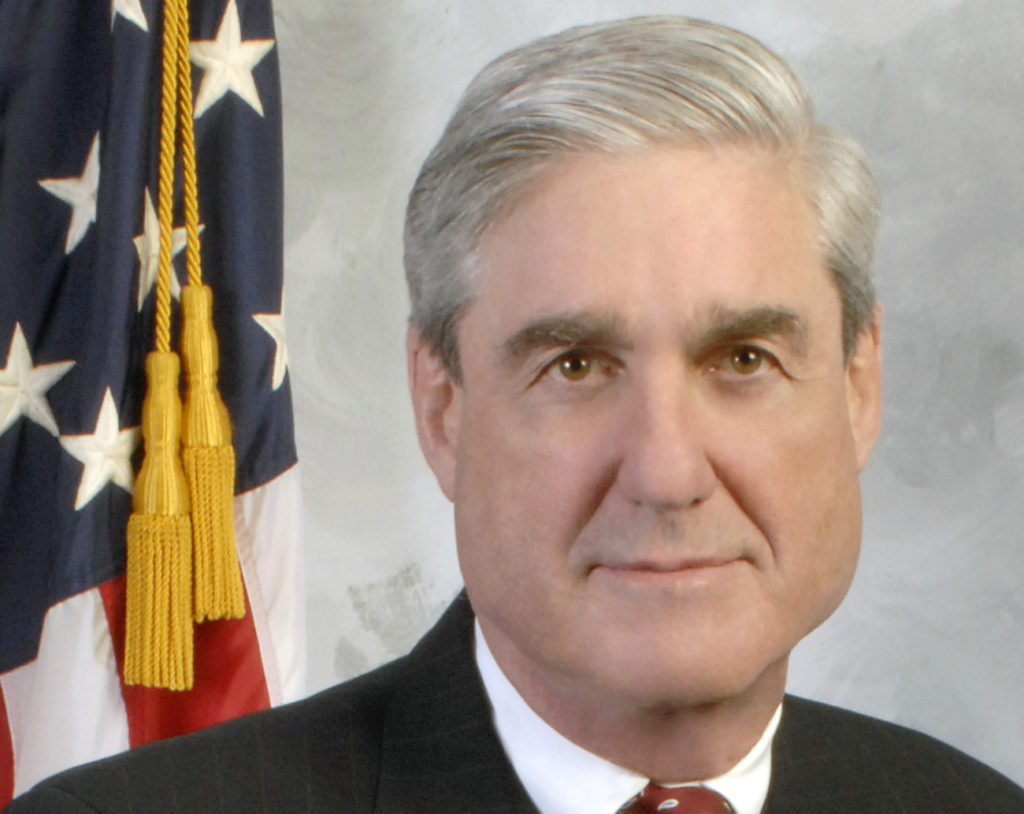Robert Mueller appears to have revealed his definition of “treason” in the Trump-Russia scandal

How widely misunderstood is treason? People like me can’t even so much as mention the word without a number of observers reflexively yelling “You can’t have treason charges without a declaration of war!” The thing is, that line has been yelled so many times, most people think it’s true, even though most legal observers think it’s false. But the more relevant question is what Robert Mueller thinks the definition is. Yesterday we got a big hint, though most people seem to have missed it.
Most legal experts – or at least not the ones playing for the cameras on cable news – believe that treason charges only require an act of war. The relevant debate has always been whether the Russian government committed an act of cyber war by hacking the U.S. elections during the 2016 campaign. If so, then any American citizen who knowingly conspired with the Russians on this effort would be guilty of conspiracy to commit treason. This brings us to yesterday.
The judge asked Robert Mueller’s team if Michael Flynn would have been charged with treason if he hadn’t cut a plea deal. Mueller’s team was initially hesitant to answer at all, and then later said “no” after taking a look at the language defining treason. Why is this important? First of all, Mueller and his team aren’t idiots; they know what the law and the Constitution say about treason. They also surely settled on their definition of treason at the outset of the Trump-Russia investigation, knowing that it would come up eventually.
Bear with me here, because the subtleties are crucial, and ultimately, almost inarguable. Let’s say that Mueller and his team decided early on that, in their interpretation, treason charges only apply when there’s a declaration of war. If so, they could have instantly told the judge that Flynn’s crimes didn’t fit their definition of treason.
Because they had to look at the language governing treason before being able to come up with an answer, this tells us that they have not ruled out treason charges across the board. Think about it: if you’ve already decided you’re not having dessert, you can immediately say “no” to any dessert item the waiter tries to tell you about. You’d only need to stop and look up the ingredients in a certain dessert item if you were open to dessert in general, and you weren’t sure if the ingredients in that specific item were right for you.
This leads to the question of why Mueller’s team wasn’t able to come up with an immediate answer to whether Michael Flynn could have been hit with treason charges. The answer seems straightforward. The sentencing memo makes clear that Flynn flipped the minute he was informed that he’d been caught. Because Flynn immediately opted for a plea deal, it meant Mueller’s team never had to stop and figure out whether treason charges, which would have been the most serious of the bunch, would have been included in the indictment.
I know this logic is rather complex, and based on the subtleties of what transpired yesterday. That said, the only logical conclusion from yesterday is that Robert Mueller and his team really do think treason charges potentially apply to someone in the Trump-Russia scandal. If their definition of treason required a declaration of war, their answer on the Michael Flynn question would have been an immediate “no.”
